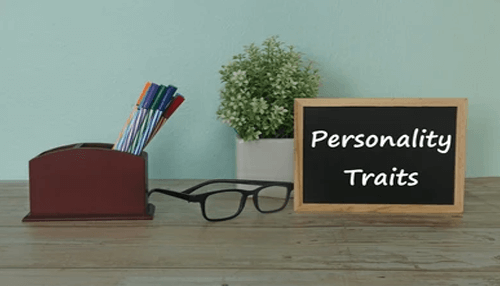The purpose of this study is to determine the effect of Big Five personality traits (agreeableness, conscientiousness, extraversion, neuroticism, and openness) in banner advertisement recognition in users on social networking website – Facebook. The researchers found that there is a positive correlation between banners’ effectiveness and banners’ views. This suggests that banners with attractive images are more effective than banners without any images. This also indicates that banners with eye-catching content are more likely to be noticed by Facebook users than banners that do not capture user’s attention.
Furthermore, banners with good colors are highly recognized compared to banners whose colors are less appealing or bad color combinations. Also, agreeable people respond better toward banners than disagreeable people do because they are more responsive toward banners. In addition, conscientious people respond better compared to less conscientious people do because banners with a lot of content would require a high level of attention, while banners without any content would only require a general glance. It also was found that banners whose images have lower saturation are recognized more, while banners with highly saturated images are recognized less by Facebook users.
In conclusion, the study suggests that understanding the personality traits of Facebook users through using the Big Five Personality Scale can help design banners that attract users’ attention and catch their interest to help achieve the main purpose of banner advertisement recognition, which is to gain the targeted audience’s attention.
Here Are The Effects Of Personality Traits On Banner Advertisement Recognition On Facebook:
1. The first sentence states the purpose of the article, which is about how human personalities affect responses toward banners. This is because banners are advertisements on the internet that need to be paid attention to by companies, businesses, or individuals who will use banners to promote their products. Banners’ effectiveness can determine the success of the advertisement and it can affect banners’ views.
2. This sentence states that there is a positive correlation between banner advertisement recognition effectiveness and banners’ views, which means that banners with good content are recognized by more people than banners that lack any contents or bad content. The higher number of banners’ views means the effective banners do more than the non-effective ones do.
3. This sentence suggests that eye-catching banners have a greater chance of being noticed by Facebook users compared to banners without any images so users would know what is inside those banners before clicking on them or they just ignore banners without any images.
4. It states that banners with attractive or eye-catching banners’ colors are recognized more compared to banners whose colors are less appealing or have bad color combinations. Therefore, banners with a good color combination would be beneficial for users to recognize banners easily and focus on them for a longer time rather than banners without any contents inside them, which do not attract the user’s attention immediately.
5. Preliminary results from a study on banners and the effects of personality traits on banner advertisement recognition.
6. The banner is one of the most common forms of internet advertisements. Websites such as Google, YouTube, and Yahoo each have billions upon billions of banners advertising many products. Many banners are simply skipped over by readers because there has been so much exposure to banners; they all start to look the same. There isn’t a good way to measure if banners truly work in getting people to notice them, but online surveys can be used for this purpose. The purpose of this survey was to learn more about how different personalities fit into a banner’s success in getting read by the reader.
7. The study was an online survey experiment composed of 40 banners, where each banner had a quiz question immediately following it. The banners were all for different products and the questions were designed to see if people would answer them or just skip over them. Each banner was shown to every participant in random order, with only one correct answer for each quiz question.
The banners had various personalities behind them depending on their font colors, fonts, pictures used, etc., but they all purposefully included words that matched specific personality traits (warmth, competence). After clicking through each banner advertisement recognition, participants answered 1-10 (1 being least likely and 10 being most likely) questions about how much they liked the banner and how likely they were to click on it.
8. The banners were divided into four personality types: warm banners, competence banners, warm banners with a face, and competent banners with a face. The banners that tested better for the first three questions were the warm banners, warm banners with faces, and competent banners. This means that it seems people have an easier time identifying or noticing banners that have been designed to match their personalities.
However, no specific personality type stood out as being more likely to be clicked on than another one.
9. This study is ongoing, so there will be changes to the results as they come in from additional participants’ answers.
Conclusion:
This study suggests banners with attractive or eye-catching banners’ colors are recognized more compared to banners whose colors are less appealing or have bad color combinations. Therefore, banners with good color combinations would be beneficial for users to recognize banners easily and focus on them for a longer time rather than banners without any content inside them, which do not attract users’ attention immediately.



